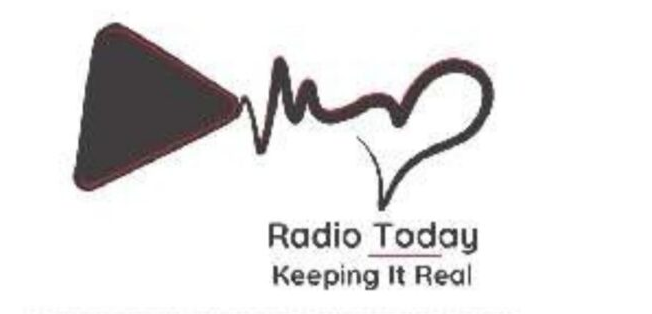Listeners:
Top listeners:
00:00
00:00
volume_up
chevron_left
-
 play_arrow
play_arrow
Radio Today Radio Today
-
 play_arrow
play_arrow
Early Morning News Mike Stroud
-
 play_arrow
play_arrow
Early Morning News Mike Stroud

share
close
WARNING SIGNS OF DEMENTIA YOU SHOULD NOT IGNORE.

Written By Rachel Nania
Dementia is an umbrella term for a decline in mental ability that interferes with daily life. It can diminish focus, attention, language skills, problem solving and visual perception. Dementia can also make it difficult for a person to control emotions and can even lead to personality changes. More than 55 million people worldwide have dementia, according to the World Health Organization. Symptoms can vary widely from person to person. These are some telltale indicators:
You’re running late because you can’t find your keys. Of course, they’re buried in your bag.
You walk into the living room to retrieve something important. What was it again? An acquaintance greets you in the grocery store. Her name escapes you.
Moments of forgetfulness can happen at any age, and according to the National Institute on Aging (NIA), may happen even more as you age. Still, memory lapses can provoke anxiety for older adults who are often left wondering whether it’s all normal or a sign of something more serious.
“It’s important for people not to be too upset at every little cognitive change,” says John Dickson, M.D., a neurologist at Massachusetts General Hospital in Boston.
Still, research suggests many are. Results from a 2019 National Poll on Healthy Aging found that nearly half of respondents aged 50 to 64 are worried about developing dementia. Similarly, a 2021 a survey from AARP found that nearly half of adults of 40 and older think it’s likely they will get dementia. In reality, about 1 in 9 Americans 65 and older have dementia, according to the Centres for Disease Control and Prevention. While dementia is not inevitable, it is important to know the warning signs so that you or a loved one can get evaluated if there are concerns, Dickson says.
Here’s what to look out for. 15 warning signs of dementia
1. Short-term memory loss. It’s one thing to forget the name of the actor who starred in the movie you went to see with friends yesterday. It’s another to forget you went to see a movie with friends yesterday. “Those more significant lapses” — especially when it comes to recent events — are concerning, says Judith Heidebrink, M.D., a neurologist and clinical professor at University of Michigan Health. Short- term memory loss can be a common symptom of Alzheimer’s disease, the most common type of dementia, Dickson says. “That’s because the short-term memory- forming centre of the brain, called the hippocampus, is affected early in the disease process.”
2. Word loss. We’ve all experienced a time or two when your brain can’t find the right word, even though it’s on the tip-of-the-tongue. That can be normal, says Heather Whitson, M.D., a professor of medicine at Duke University School of Medicine and director of the Duke Centre for the Study of Aging and Human Development. But if it’s happening a lot and you find that a person is substituting words that don’t fit the conversation, that’s worrying.
For example, Whitson says, a person might want to ask, “Have you seen my jacket?” But when they can’t find the word for jacket, they ask, “Have you seen my shirt?”
Another warning sign is difficulty joining, following or completing conversations. “Those types of communication skills can be an early symptom,” Heidebrink says.
3. Difficulty multitasking. If you’re someone who has always put out a Thanksgiving dinner without a hitch, and suddenly you find that staple side dishes are missing from the spread, the rolls are burned and dinner is delayed by two hours, that could signal something more serious is at play. “If it just doesn’t seem like it’s happening well, or it’s happening with a lot more effort, that would be a sign that there are executive function issues,” Whitson says.
4. Repetition. “If a person is being told by family or friends that they are repeating questions or repeating stories and statements in a short timeframe, without seeming to realize that they just told the person that, or they just asked that same question and it was answered, that’s a red flag.”
5. Personality changes. A sudden and routine loss of interest in family, friends, work and social events can be a warning sign of dementia. “People may feel less comfortable in social situations — holding a conversation, remembering the conversation — so they may start to withdraw from social situations.” (Heidebrink )
A 2023 study published in the Journal of Alzheimer’s Disease found that apathy may be a sign that someone is progressing from mild cognitive impairment (MCI) — symptoms of memory loss or thinking problems that are not as severe as dementia — to Alzheimer’s disease. Being increasingly anxious, confused, fearful or suspicious may also be a sign of dementia, according to the Alzheimer’s Association.
6. New sleep behaviours. While Whitson says sleep issues can be “very common” among older adults, some sleep behaviours, such as sleepwalking, are not a normal part of aging. “It’s important to know that there are some types of dementia that are associated with altered sleep behaviour — acting out dreams or talking in your sleep, when that wasn’t something that the person used to do.”
7. Worsening sense of direction. Changes in sense of direction can also occur with dementia, Dickson says, and this can manifest in things like difficulty driving and getting lost in familiar environments.
“Sometimes it’s just a loss of confidence,” Heidebrink adds. “People will start to restrict their driving to very familiar, close destinations, sort of low-speed, low-traffic situations, or good weather only.”
8. Depression. A new and sudden onset of depression later in life can be a warning sign of dementia, Dickson says. According to the Alzheimer’s Association, up to 40 percent of people with Alzheimer’s disease suffer from significant depression.
Depression may not just be a symptom of dementia but also a potential precursor. A 2023 study published in JAMA Neurology found that the risk of dementia more than doubled for adults previously diagnosed with depression.
9. Confusion about time and place. If someone forgets where they are, or can’t remember how they got there, that’s a red flag. Another worrisome sign is disorientation about time — for example, routinely forgetting what day of the week it is, says Jason Karlawish, M.D., a neurologist and professor of medicine at the University of Pennsylvania Perelman School of Medicine and codirector of the Penn Memory Centre.
10. Difficulty with visual or perceptual tasks. Tripping over something because you don’t recognize that it’s in the way, or not being able to make sense of the time on a clock could be warning signs of dementia.( Heidebrink) According to the Alzheimer’s Association difficulty with balance, trouble reading and problems judging distance or distinguishing colour and contrast can also be early indicators
11. Financial missteps. Money problems may be one of the first noticeable signs of Alzheimer’s disease and related dementias, according to the NIA.
“There’s a great deal of reasoning and memory that go into financial tasks, and so money management errors can certainly be an early way tin which people experience changes,” Heidebrink says.
According to the NIA, signs of money problems can include difficulties with the following:
- Counting change
- Paying for a purchase
- Calculating a tip
- Balancing a cheque book
- Understanding a bank statement
12. Changes in judgment. People with dementia may experience changes in judgment and decision making that can affect everything from their appearance to their financial wellbeing. (Alzheimer’s Association).
A recent study led by researchers at the University of Southern California looked at brain images from 97 adults over the age of 50 and found that people who had brain changes associated with early stages of Alzheimer’s were more vulnerable to financial scams. While not a single, definitive indicator, “assessing financial vulnerability in older adults could help identify those who are in the early stages of mild cognitive impairment or dementia, including Alzheimer’s disease,” researcher Duke Han said in a news release.
13. Misplacing things. We all lose our keys, reading glasses, that important piece of mail you meant to hold onto. But putting things in unusual places, or misplacing something and not being able to retrace your steps, can be an early warning sign of dementia.
It’s easy to lose track of things, especially when adjusting to a new routine, like retirement. What’s more concerning is if you find what you’re looking for, but have no recollection of putting it there in the first place.
Whitson notes that, “If you’re frequently finding that you just have no memory of being in that room with that [missing object], to me, that is more alarming, because that suggests that something with short-term memory is not registering.
14. Misusing items. Another subtle symptom, “is not using things for their correct and intended purpose.” For example, eating with a spoon when you would usually select a fork, or pouring wine into a beer glass.
15. Hallucinations. Delusions or hallucinations can be a symptom of dementia — “particularly visual hallucinations, like seeing people or animals that aren’t there,” Dickson says.
Most common types of dementia
These conditions are the leading causes of dementia. People can also have mixed dementia, a combination of two or more types, such as Alzheimer’s and vascular dementia.
These are:
- Alzheimer’s disease
- Vascular dementia.
- Lewy body dementia
- Frontotemporal disorders.
Written by: Mike Stroud
Rate it
Similar posts
Recent Comments
No comments to show.Featured post

Latest posts
Current show
Upcoming shows

Breakfast with Errol Ballantine
8:00 am - 10:00 am

Pages Unbound with Glenda Slade
10:00 am - 10:30 am

Living Our Best Years
10:30 am - 12:00 pm

BBC World Midday News
12:00 pm - 1:00 pm

After Lunch with Radio Today
1:00 pm - 3:00 pm
Chart













